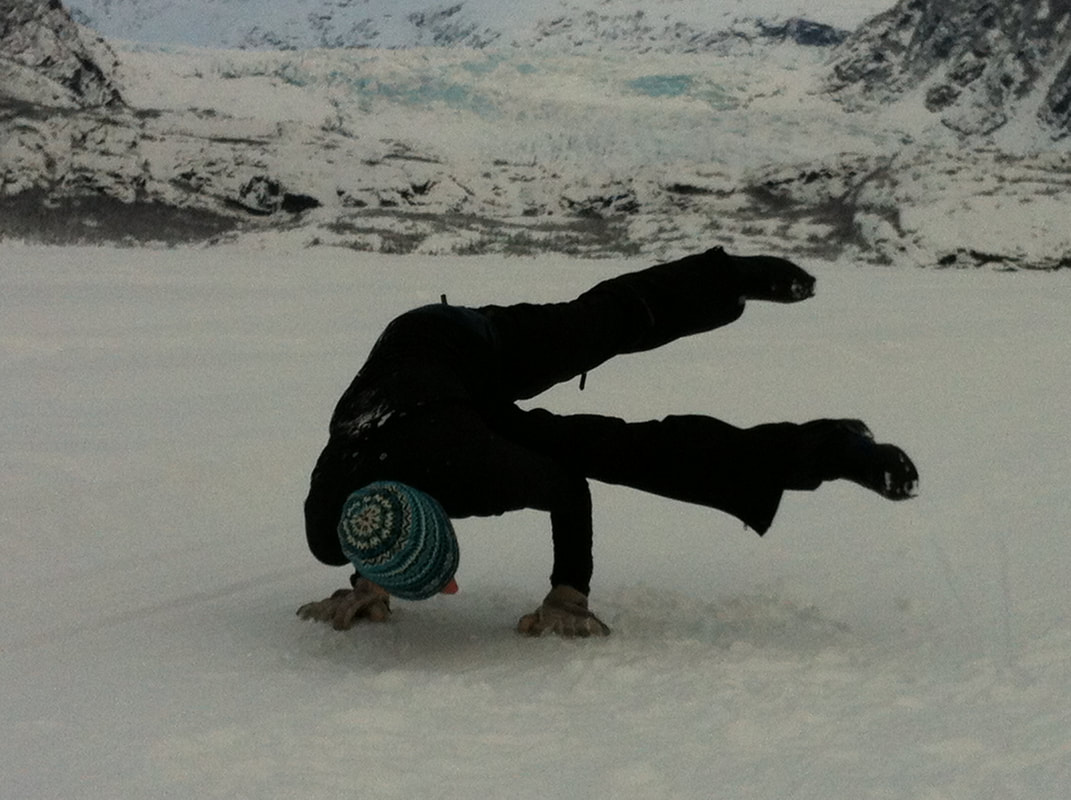|
Quote "There is only one thing that makes a dream impossible to achieve. Fear of failure." Paulo Coelho. What is your wildest dream? Why aren't you going for it? I bet I can guess...FEAR. Fear of failing. Fear of not being ready. Fear of not being good enough. Fear of letting go of your comfort zone. You see FEAR is the Number 1 reason people don't pursue their dreams. It is the reason so many people go to take their last breath and say "I wish I had only...." (and those dots are not filled in with the words worked more, bought more crap, or worried more). So how do you deal with that big, nasty FEAR gremlin? First, you need to get to know it. Like give it a name. Maybe yours is named Worry Wart or Doubting Donna or just Bob. Next, you need to sit with it and have a chat. Find out where it originates from (somewhere in your past is most likely the answer) and get to know it's back story. Listen to all of its reasons for staying small and safe. Thank it for trying to protect you. Then, tell that little fear gremlin about your dream. Paint a really awesome and amazing picture for it of how GREAT things could be if you pursued it. Make it as tangible and detailed as you possibly can. Tell your gremlin that you are a grown up and you've got this. Tell it that you both owe it to YOU to become the most fabulous and satisfied version of yourself that you can possibly be. Now one thing I know about gremlins is that they have a very short attention span and memory. So get ready to have this little chit chat a few times as you move forward. Each time you do, make that dream story so irresistible that you just have to do it! Tell yourself that you were put here to do great things. Surround yourself with other people who are doing the same and who encourage you to be a Gremlin Taming Master! Why Failure is GOOD for Success As a recovering perfectionist I've spent a lot of my life avoiding failure. If I just don't do it, then I won't ever get caught looking foolish when I fall. When I started doing yoga I used to tell myself a little story about why I didn't need to try to do the arm balance called crow pose (you literally are balancing on your hands with your legs propped up on your arm bones). It went like this. "I don't need to do poses like that to prove that I'm a real yogi. Those are just circus tricks. I'll just sit here safely with my feet on the ground and wait until the teacher moves onto the next pose." But what my little fear gremlin was really saying was, "I'm afraid to fall flat on my face and look like an idiot." It wasn't until much farther along my yoga journey that I learned that it's just part of the process to fall 10 times before you succeed. And that when you master a pose like crow, it is so much more than just a physical accomplishment. In the falling and failing you learn to refine your technique and your approach. And on the day that you finally get it, you learn how strong you are not just on the outside but on the inside. Einstein said it best, "If you've never failed, you've never tried anything new." So get out there and get messy. Fall on your face. Dust yourself off with a smile and the reminder that with each attempt you are learning something new. Oh, and remember, EVERYONE around you is in the exact same boat (or crow) and is WAY more concerned with how they look than with what you are up to.  Side crow…on a frozen lake…near a glacierOnce you find your balance, you can reconnect with it just about anywhere! Need some help finding yours? Need a little Gremlin Taming guidance? Let’s connect for a FREE consult and chat about how some Life Reinvention Coaching might be just what you are needing.
0 Comments
While it’s lovely to spend the month of November taking part in a “gratitude challenge” (like I have going on Facebook by the way), the true and lasting impact of practicing gratitude comes when you make it part of every single day. As my guy, Deepak Chopra, says - gratitude makes you an alchemist. It transforms dark into light, lack into abundance, and truly rewires your brain.
If you’ve ever listened to Oprah, then you know that she is a HUGE believer in the power of writing down your daily gratitudes. Apparently she has hundred of gratitude journals from over the years. I took up the formal, daily practice of gratitude journaling three years ago when I purchased them for Andy and myself for Christmas stocking stuffers. We quickly added the simple, yet transformative practice into our morning routine. Rather than starting the day with emails, social media, or the news, we start ours with a positive dose of soul food. It truly sets the tone for my whole day! Now you know I love my research so this week I want to share with you some of the researchy goodness I’ve found on the practice of gratitude! Here's a little something from Positivepsychology.com by Heather Craig, BPsySc: Research into gratitude and well-being has focused on 4 key areas which I will now look into. The first is psychological pathology. Being thankful has been shown to predict significantly lower risk of a range of diagnoses including major depression, generalized anxiety disorder, phobia, nicotine dependence, alcohol dependence, drug “abuse” or dependence, and the risk of bulimia nervosa (Wood et al., 2010). The second aspect of well-being looked at involves emotional functioning. This is looked into from a subjective well-being approach. Gratitude is associated with high positive affect, low negative affect, and a high satisfaction with life. A number of studies have found that gratitude is associated with subjective well-being (more on this, later, too!) (Wood et al., 2010). The third component of well-being that gratitude research has looked at is existential conceptions of gratitude. It has been found that gratitude is linked to psychological, or ‘eudaimonic’ wellbeing – which is a sense that one’s life has meaning, and that a person is living their life to the fullest (Wood et al., 2010). A couple of research studies have linked gratitude to eudaimonic wellbeing. The final area which research into the relationship between gratitude and well-being is ‘humanistic conceptions’. This research has found that gratitude is strongly and positively correlated with ‘authentic’ living and negatively correlated with self-alienation (Wood et al., 2010). Some researchers have argued that gratitude serves an evolutionary purpose because it facilitates humans’ tendency to cooperate with non-family members (Wood et al., 2010). Plus, research has shown that people who are regularly grateful:
So grab a journal and jump on the Gratitude Train with me! I guarantee your life with be transformed with this simple yet profound practice! |
AuthorMeet Mary Baker ..LIFE COACH, YOGA TEACHER, MINDFULNESS GUIDE, RECOVERING PERFECTIONIST & PEOPLE PLEASER, FEAR CONQUEROR, TRUTH SEEKER, & DREAM WEAVER Archives
February 2023
Categories |

 RSS Feed
RSS Feed